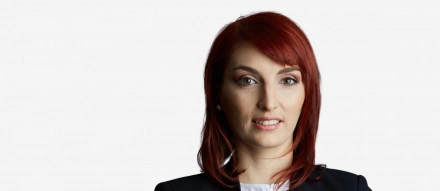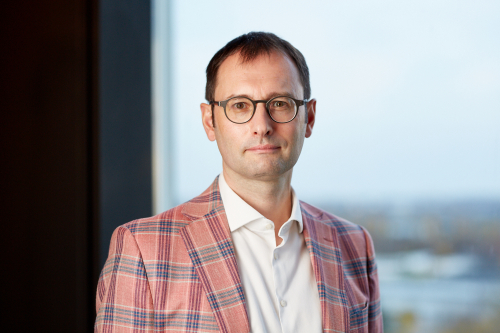
Summer Plans 2022: Interview with Dino Ebneter, Country Managing Partner, for Forbes Romania
If in other years, the main theme of the Special Editorial Project - Summer Plans, designed by Forbes Romania, was focused on customs and holiday destinations, this year, they challenged the most important managers and entrepreneurs to answer a short questionnaire, in a complicated period from both an economically and socially point of view, although for most of us it should have been a long-awaited return to the (new) normal.
- Will your business go on holiday during this period? Or is it no longer the time for “vacations” in the geopolitical, economic, and social context in which we find ourselves?
For many business leaders, after the effects of the COVID-19 pandemic and the war in Ukraine, we believe that the hardest test of leadership is taking place in these moments: how can they return a business to the 'normal' they knew, in a time when economies are still faltering.
In our case, because we have a business model adaptable to crises, we did not necessarily feel pressure regarding the company's financial performance. We continued to meet our commitments and deadlines, with our projects continuing to progress, considering the factors we could control under the given conditions. The high level of expertise allows us to serve both global and local clients while remaining faithful to an agile, personal and distinctive approach designed to help them overcome any difficult situation.
Mazars continues to operate as before, in a balanced way, with a lot of resilience and creativity, therefore, for the organisation and our people, we can say that it is business as usual. Of course, during the summer and beyond, our colleagues are taking a well-deserved break from projects to relax and take care of themselves, both mentally and physically.
- The most common topics in the discussions that the editors of Forbes Romania had throughout this year concerned the increase in inflation, the war in Ukraine, the pandemic, the problems in the supply chains, the lack of labour, and the explosive increase in utility prices. What are your concerns in the next period?
To start on a positive note, I would like to mention the fact that Romania has been and continues to remain an attractive country from an investment point of view. There are very good businesses in the country, both mature and at an early stage, which are growing very fast despite the latest global challenges. Also, as you probably know, Romania had an economic growth of 6.5% in the first quarter of 2022, compared to last year. This can only make us happy and give us small hopes for the future.
And to also discuss less positive aspects, certainly, the biggest challenge, both for our company and the entire business environment, is represented by the limited workforce. I believe that in this post-pandemic work environment, where millions of people are leaving their jobs and the phenomenon called The Great Resignation is already present, it is more important than ever for business leaders to retain their existing talent. One of the immediate solutions would be the development of customised retention programs, which could represent a first step in managing this challenge.
Another concern, for all companies, is the increase in inflation, which generally impacts all of us, both as individuals and as business leaders. We can easily see that, in certain sectors, companies have already started looking for ways to reduce costs as efficiently as possible. We do not know what will happen in the future, but it is good to be prepared for any difficult situation.
Finally, I believe that the pillars of a fair and prosperous economy are represented by financial transparency and trust, and auditors are a central component of this ecosystem. It is time to collectively rethink the way this profession operates. It is our responsibility to participate in the creation of a healthier market and we will contribute in any way we can to ensure that this transformation is going to happen in the coming years.
- What worries you, for the next period, in the field/sector in which you operate?
Undoubtedly, the last two years have accelerated migration, with most Romanians wanting to work in another country. We need to ask ourselves what are the solutions to this problem as soon as possible because if multinationals, with all their benefits and generous compensation, cannot find professionals in their respective industries, imagine the problems faced by small businesses that do not own many resources.
Of course, I also think that the level of education plays a very important role in finding the right people, and companies are offering various opportunities in this area, such as online learning courses or even university programs, paid for by the employer.
Another concern is represented by the need for more foreign investments in Romania and at the same time the benefits that foreign companies bring to the country, such as technology, knowledge, access to global markets, decades or hundreds of years of experience, and so on.
As for our business, in the future, we will continue to invest where it matters for our people, our clients, and society, growing responsibly and moving forward with renewed purpose and confidence.
- What do your business plans look like for the end of this year? But for 2023?
First of all, in 2023, I believe that digital transformation will be essential for the growth of all businesses. Mazars is a technology-first firm, and we recently implemented a new platform, called Signals, which is a central place where our clients can connect and work with their Mazars team in a simple, secure, and personal way.
Signals enables our clients to work efficiently in an application that meets the highest quality standards. They can share documents online, approve tax returns and access their financial applications directly. Signals provides a 24/7 connection to all information, documents, and applications with just one login. Everywhere and on every device.
We will continue to invest in technology and launch new projects, tools, or digital initiatives in the near future. Our goal is to provide our customers with personalised digital experiences by standardising certain processes with various robots. In this way, we can improve our customers' satisfaction and support them in growing their businesses.
Second of all, like other companies, we recognize our exposure to a wide range of risks and uncertainties, which have the potential to affect our services, people, financial performance, and clients. We make every effort to ensure that risks are properly identified, assessed, measured, and managed. Quality will remain the backbone of everything we do and we want to continue to foster a true culture of quality and risk management.
And last but not least, two other elements that we, in particular, focus on, refer to talent management and the prioritisation of ESG factors. We want to continuously improve the way we serve our clients and develop our talent, making Mazars both a knowledge-based company and a school of excellence. I also believe that the call for a more sustainable future has never been stronger, and our firm's core mission is to answer that call and help our clients embrace the need for sustainability. How do we do this? We have dedicated experts contributing to the European CSRD effort, have developed sustainability training courses for our staff and are working with clients to help them prepare for ESG reporting and integrate sustainability strategies into their business models. And we won't stop there.
The interview can be accessed on the Forbes Romania page, here.

